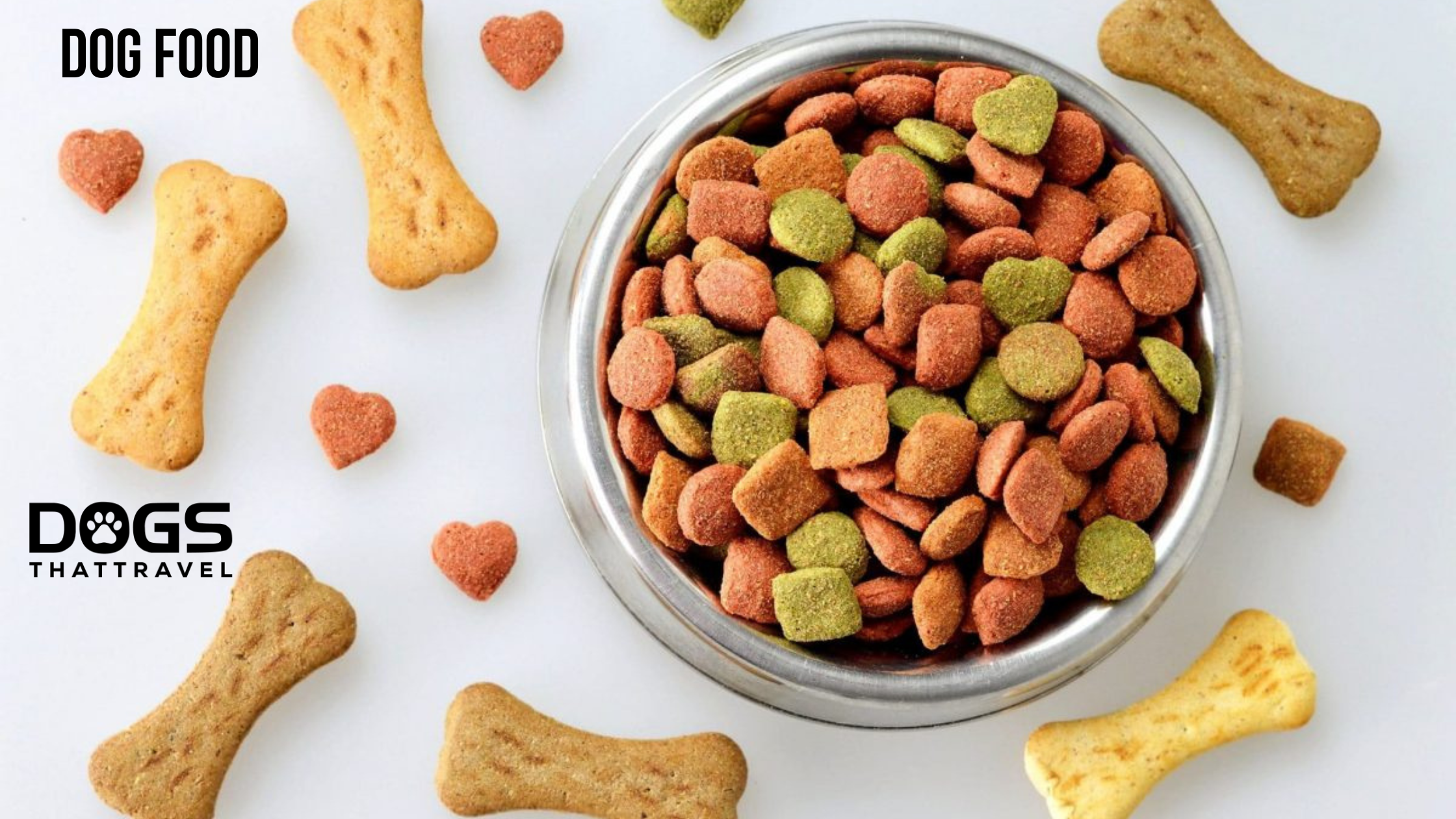Exploring the World of Dog Food: From Fresh to Gourmet and Everything in Between
The health and well-being of our canine companions are paramount, and providing them with nutritious and delicious food is a fundamental aspect of responsible pet ownership. The world of dog food is diverse, offering a plethora of options to cater to the varying needs, preferences, and dietary requirements of dogs. From fresh dog food and dry kibble to gourmet offerings, specialized diets for young and old dogs, and the convenience of dog food delivery, this comprehensive guide delves into the world of dog food and helps you make informed decisions to keep your furry friend happy and healthy.
1. Fresh Dog Food: A Nutrient-Rich and Natural Choice
Fresh dog food has gained popularity as an alternative to commercial dog food. Unlike processed kibble, fresh dog food is made from human-grade ingredients and lacks artificial additives, preservatives, and fillers. Here are some benefits of choosing fresh dog food:
Nutritional Integrity: Fresh dog food is minimally processed, retaining the natural nutrients and flavors of the ingredients. It typically contains high-quality proteins, vegetables, and whole grains, offering a balanced diet for dogs.
Digestive Health: As fresh dog food lacks artificial additives and fillers, it is often gentler on a dog’s digestive system, reducing the likelihood of allergies and stomach sensitivities.
Variety and Customization: Fresh dog food allows pet owners to customize meals according to their dog’s specific needs, making it an ideal choice for dogs with dietary restrictions or health concerns.
Transitioning to Fresh Dog Food: When transitioning from commercial dog food to fresh dog food, do it gradually over a period of a week to allow your dog’s digestive system to adjust. Consult your veterinarian to ensure the fresh food meets your dog’s nutritional requirements.
2. Dry Dog Food: A Convenient and Affordable Option
Dry dog food, also known as kibble, is one of the most popular choices among pet owners due to its convenience and affordability. Dry dog food is nutritionally balanced and typically has a longer shelf life compared to fresh dog food. Here are some benefits of choosing dry dog food:
Convenience: Dry dog food can be easily stored, requires no refrigeration, and can be served straight from the bag, making it a practical option for busy pet owners.
Dental Health: Some dry dog food varieties are formulated to promote dental health, helping to reduce tartar buildup and maintain healthy gums.
Cost-Effective: Dry dog food is often more affordable than fresh or gourmet options, making it a budget-friendly choice for pet owners.
Choosing Quality Dry Dog Food: When selecting dry dog food, read the label carefully to ensure it contains high-quality proteins, whole grains, and essential nutrients. Avoid products with excessive fillers or artificial additives. Look for options suitable for your dog’s age, size, and specific dietary requirements.
3. Gourmet Dog Food: Indulging Your Pup’s Taste Buds
Gourmet dog food caters to dogs with refined palates and discerning tastes. These premium offerings often feature unique and high-quality ingredients that go beyond the standard fare. Here are some features of gourmet dog food:
Exquisite Ingredients: Gourmet dog food may include exotic meats, organic produce, and artisanal ingredients, providing a gastronomic experience for your furry friend.
Attention to Detail: Gourmet dog food is crafted with care and attention to detail, ensuring the meals are visually appealing and appetizing for dogs.
Variety and Culinary Delights: Gourmet dog food often offers a diverse menu with a range of flavors and textures to satisfy even the pickiest eaters.
Feeding Gourmet Dog Food: Gourmet dog food is generally suitable for all dogs, but it is essential to consider your dog’s individual dietary needs and any potential allergies. While these premium offerings can be a delightful treat, it is advisable to use them in moderation and in conjunction with a balanced diet.
4. Food for Young and Old Dogs: Catering to Different Life Stages
Dogs have varying nutritional needs at different stages of life. Puppies require a diet that supports growth and development, while senior dogs benefit from meals that cater to their changing metabolic needs. Here’s what to consider for young and old dogs:
Food for Puppies: Puppy food should be rich in high-quality proteins, fats, vitamins, and minerals to support their rapid growth and development. Look for puppy-specific formulas that provide the necessary nutrients for healthy bones, muscles, and immune systems.
Food for Senior Dogs: As dogs age, their metabolism slows down, and they may require fewer calories. Senior dog food is often formulated with reduced calorie content and added nutrients like glucosamine and chondroitin to support joint health.
Specialized Diets for Health Conditions: Some dogs may have specific health conditions that require special dietary considerations. For example, dogs with allergies, sensitive stomachs, or medical conditions may benefit from limited ingredient diets or prescription diets prescribed by veterinarians.
5. Dog Food Delivery: Convenience at Your Doorstep
Dog food delivery services have become increasingly popular, offering the convenience of having dog food delivered directly to your doorstep on a regular basis. Here are the advantages of dog food delivery:
Time-Saving: Dog food delivery eliminates the need for regular trips to the pet store, saving time and effort for pet owners.
Customization: Many dog food delivery services offer customized meal plans based on your dog’s age, size, and specific dietary requirements.
Regular Supply: With scheduled deliveries, you can ensure your dog never runs out of food, preventing any disruptions in their diet.
Choosing a Reliable Dog Food Delivery Service: When selecting a dog food delivery service, research their reputation, reviews, and the quality of their products. Ensure that they offer a variety of high-quality dog food options and have good customer service.
6. Food for Dogs on a Diet: Maintaining a Healthy Weight
Weight management is essential for maintaining your dog’s overall health and preventing obesity-related issues. Here’s what to consider when choosing food for dogs on a diet:
Weight Management Formulas: Many commercial dog food brands offer weight management formulas that are lower in calories and fat, helping dogs maintain a healthy weight.
Portion Control: Accurate portion control is crucial for dogs on a diet. Consult your veterinarian to determine the appropriate portion size based on your dog’s age, size, and activity level.
Healthy Treat Alternatives: When on a diet, opt for healthy treat alternatives, such as small pieces of fresh fruits or vegetables, to avoid unnecessary calorie intake.
Regular Exercise: Along with a balanced diet, regular exercise is essential for weight management and overall well-being.
Conclusion:
Selecting the right dog food is a vital aspect of ensuring your canine companion’s health, happiness, and longevity. Whether you choose fresh dog food, dry kibble, gourmet offerings, or specialized diets, always prioritize the nutritional needs and preferences of your dog. Understanding the different options available and consulting with your veterinarian will help you make informed choices that keep your furry friend well-nourished, satisfied, and content throughout their life’s journey. Remember, the right food is the foundation for a happy and healthy life for your beloved canine companion.

